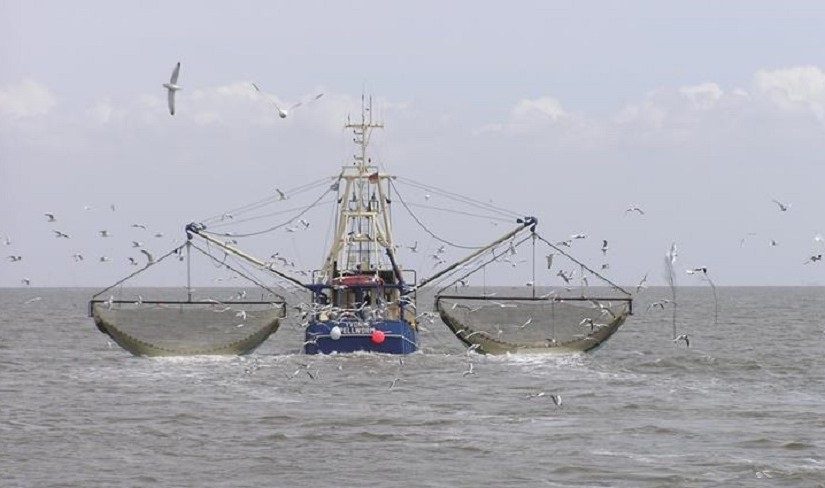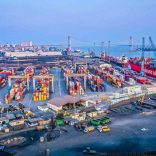Mozambique: Inflation will average 4.4% in 2025, see 'steep climb' in 2026
Kroll audit divides the creditors – AIM

File
The audit by the company Kroll Associates of Mozambique’s “hidden debts” has divided Mozambique’s creditors, with holders of the bonds initially issued in the name of Ematum (Mozambique Tuna Company) now urging the government to revoke its guarantees to the other two controversial loans, issued to the security-related companies Proindicus and MAM (Mozambique Asset Management).
Ematum, Prondicus and MAM are all part of the same package – a programme supposedly to boost maritime security in Mozambique’s Exclusive Economic Zone. The main mover in this package was the State Security and Intelligence Service (SISE), and GIPS, a company run by the social services of SISE, is the determinant shareholder in Ematum, Proindicus and MAM.
Loans for Ematum (850 million US dollars), Proindicus (622 million) and MAM (535 million) were obtained from the European banks Credit Suisse and VTB of Russia in 2013 and 2014. The banks lent the money because the Mozambican government, then headed by President Armando Guebuza, issued guarantees. These guarantees were illegal because they violated the ceiling on loan guarantees in the 2013 and 2014 budget laws, and also violated a clause in the Mozambican constitution under which only the Mozambican parliament, the Assembly of the Republic, can authorise such debts.
The same contractor, the Lebanon-based group Privinvest, supplied assets and services to all three companies. But Ematum was different in that its existence was publicly known, since the loan took the form of a bond issue on the European market, while the very existence of Proindicus and MAM was kept secret.
In early April 2016 the Mozambican government ratified a deal under which the bonds issued by Ematum were replaced by sovereign government bonds with a longer repayment time, but at a higher interest rate.
The bondholders, who claim that their bonds are of “unquestionable” legality, now demand that repaying them must take priority, and urge the government to cancel the Proindicus and MAM guarantees.
The bondholders argue, that once the damning findings of the Kroll audit and of last year’s Parliamentary Commission of Inquiry are taken into account, “It is evident that there is no basis — in either Mozambican or English law — for the Mozambique government to honor the purported guarantees of the Proindicus and MAM loans. Disavowal of those purported guarantees and the liquidation of ProIndicus, MAM, and Ematum is the appropriate restructuring that needs to take place to clean up the system, to insulate the government balance sheet from further liabilities, and to restore access to external financing at the lowest cost to Mozambique.”
The bondholders mention English law because the initial loans were arranged with the London offices of Credit Suisse and VTB, and any attempt to enforce the guarantees would go through an English court.
The statement was issued on Thursday by the Global Group of Mozambique Bondholders (GGMB), which was set up last year by investors holding most of the bonds. According to a report from the Bloomberg agency, the GGMB is advised by Thomas Laryea, a lawyer at the Washington-based law firm Cooke Robotham, and former International Monetary Fund official Charles Blitzer.
The GGMB last year refused to start talks with the Mozambican government on restructuring the Ematum debt, until the Kroll audit was published and a new programme was drawn up between Mozambique and the IMF.
Thursday’s statement looks like an opening gambit in restructuring talks. It stresses the “broadly positive economic developments” that have taken place since the government’s meeting with its creditors in London in October, when Finance Minister Adriano Maleiane had explained the impossibility of honouring the Ematum, Proindicus and MAM loans, and hence the need to restructure all of them.
The GGMB noted the appreciation of the Mozambican currency, the metical, by about 34 per cent since October as a result of “sound monetary policies and a recovery in exports”. Net international reserves had increased substantially, and there was now the prospect of the payment of massive capital gains tax resulting from the sale by the Italian energy company ENI of a large stake in the Rovuma Basin gasfields to the US hydrocarbon giant ExxonMobil.
Taking Maleiane’s October briefing as a basis, the GGMD calculates that the government’s debt repayment capacity over the next five years has improved by some 850 million dollars (which, coincidentally or not, is exactly the size of the initial Ematum loan).
“Furthermore”, the statement adds, “the contingent liabilities on the government balance sheet would be substantially reduced by disavowal of the purported guarantees”.
“The combination of the improved economic trajectory and an appropriate response to the findings of the Kroll report provide a path for Mozambique to re-establish credibility in the international financial markets”, the GGMD argues.
The proposal from the bondholders is essentially very simple – they are urging “pay us, and disavow the other debts”. This could be very tempting, since it would amount to cancelling between 50 and 60 per cent of the debt.
On the other hand, the Ematum loan suffers from exactly the same kind of illegalities and financial abuses as Proindicus and MAM. The Kroll report points to massive discrepancies between the price of assets as stated on invoices, and as estimated by an independent valuation, and this affects all three companies.
Certainly civil society bodies in Mozambique are calling for the cancellation of all the debts and not just some of them.












Leave a Reply
Be the First to Comment!
You must be logged in to post a comment.
You must be logged in to post a comment.